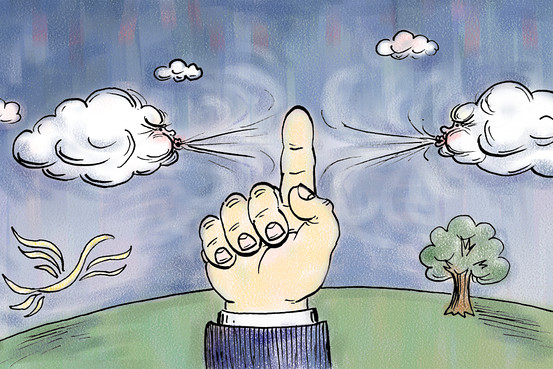Parking minimums, a thread.
Why? Because this is something many continue to approach from the perspective of "well I drive and so everywhere I go needs to have parking."
Warning: This was the subject of my master's thesis, so...
(1/16)
Why? Because this is something many continue to approach from the perspective of "well I drive and so everywhere I go needs to have parking."
Warning: This was the subject of my master's thesis, so...
(1/16)

Firstly, and importantly, parking requirements are neither scientific nor data-based. They are the bureaucratic equivalent of sticking a finger in the air to determine wind speed. Could be accurate, but mostly not. (2/16) 

What's more, parking minimums are often based on what other cities do. It's literally "oh they do that over there? Then let's do it here too." Cities don't survey existing parking to see if their requirements are rational, and they often are not. (3/16) 

For instance, why do many cities require 4 parking spaces for every 1,000 square feet of office space? Because.
Because each parking space requires ~300 square feet, that means many offices have 1,200 square feet of parking for every 1,000 square feet of office space. (4/16)
Because each parking space requires ~300 square feet, that means many offices have 1,200 square feet of parking for every 1,000 square feet of office space. (4/16)

There are huge implications that result from how much parking cities (like LA) require in new construction, around:
- Affordability
- Climate change
- Streetlife
- Small business opportunities
(5/16)
- Affordability
- Climate change
- Streetlife
- Small business opportunities
(5/16)
AFFORDABILITY: New apartments are typically built to match the amount of parking that a piece of land can hold. So, parking requirements dictate how many apartments get built. The more parking required, the fewer apartments that get built. (6/16) 

AFFORDABILITY (2): Parking is also *really* expensive to build, and a single parking space included with an apartment typically accounts for ~10% of the monthly rental price. So, parking requirements drive up the cost of housing. (7/16)
brookings.edu/research/parki…
brookings.edu/research/parki…
CLIMATE CHANGE: Off-street parking takes enormous energy to construct, to dig a hole in the ground, produce and pour cement, and then build a structure on top of that. Almost all that energy to construct parking produces carbon dioxide in mass quantities. (8/16) 

CLIMATE CHANGE (2): And all that parking incentivizes more car driving, baking in the cost of the most expensive part of vehicular ownership--the space to store a car. That space costs more to construct/rent/buy than many cars cost to lease/own. (9/16)
quincycan.org/2018/10/12/par…
quincycan.org/2018/10/12/par…
STREETLIFE: Parking requirements lead to buildings like this, with housing placed way up in the air, and the floors closest to the street reserved for multiple levels of parking. This means only a portion of the first level is available for street-accessed amenities. (10/16) 

OPPORTUNITIES: Parking is the tail that wags the dog. In LA, restaurants have to provide 3,000 square feet of parking for every 1,000 square feet of restaurant space (including the kitchen!). Multiplied by hundreds of spaces across a city, this means... (11/16) 

...Many retail spaces end up staying vacant because they don't have the dedicated off-street parking space, thus denying small business opportunities, which also means fewer jobs in walking distance to many people's homes, and, ironically, more auto-dependence. (12/16) 

How much impact do parking requirements have? In Downtown Los Angeles, the Adaptive Reuse Ordinance was passed in 1999, allowing for conversation of commercial spaces into housing that were vacant because they didn't have the parking, and... (13/16)
planetizen.com/node/55903
planetizen.com/node/55903
...since then, Downtown LA's population has tripled, with much of that new housing enabled by - guess what - the Adaptive Reuse Ordinance eliminating parking requirements for older buildings. (14/16)
kcet.org/history-societ…
kcet.org/history-societ…
One final note: LA County has 200 square miles of parking, or 3 parking spaces for every car, or about 2-3 times as much space for our cars as we do to house our residents. Parking requirements give higher priority to housing cars than we give to housing people. (15/16) 

Which is all to say, parking requirements are arbitrary climate denialism and drive up the cost of housing while restricting opportunities for small business. Want to have an immediate impact on making cities more livable? Eliminate parking minimums. (16/16) 

+1 - This article has some great points about parking, like...
"In Seattle, which is in dire need of new affordable housing, 40% of the land area is currently used for parking." (+1/2)
fastcompany.com/90202222/heres…
"In Seattle, which is in dire need of new affordable housing, 40% of the land area is currently used for parking." (+1/2)
fastcompany.com/90202222/heres…
"In Jackson, Wyoming, the estimated cost of parking [provided] for each household was $192,138." (Jackson, WY, average annual household income is $75K).
And... "Des Moines... has roughly 1.6 million parking spaces, or 19.4 per household."
(+2/2)
And... "Des Moines... has roughly 1.6 million parking spaces, or 19.4 per household."
(+2/2)
• • •
Missing some Tweet in this thread? You can try to
force a refresh










